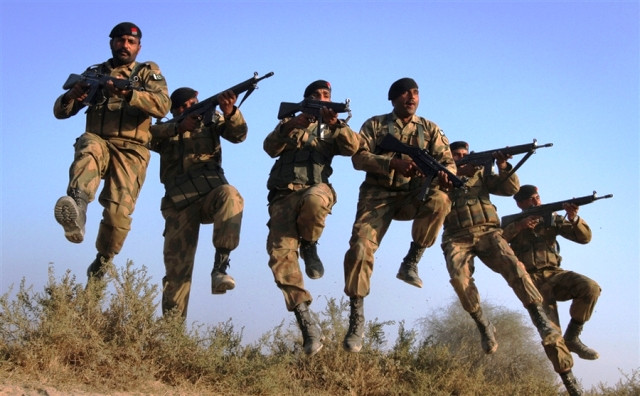While tensions at the border between Pakistan and India have somehow de-escalated, an advisory recently issued by the Indian civil defence officials in the Indian-occupied Kashmir recommending citizens to prepare for nuclear war by building underground shelters – stocked with food, water and candles enough for a fortnight – has certainly triggered pre-emptive contemplation on the Pakistani side.
Leaving Islamabad in a fix about what the bomb shelters beyond its borders portend, India is playing its role in provoking Pakistan- or at least what most critics of the advisory in and outside the Indian-occupied Kashmir see it as.
The advisory reminded me of what John F Kennedy did with the Soviet Union in 1961, by advising American families to build bomb shelters to protect them from atomic fallout in the event of a nuclear exchange with the Soviet Union.
They might teach this in war studies to soldiers under training as a tactic to psychologically overcome the enemy. But I wonder if they also teach them about prospective repercussions of such provocations.
Since January 6, two soldiers on each side of the Line of Control were found killed in three skirmishes between the two sides. This, according to Indian account, included a decapitated body of their soldier.
An outrage from both sides followed- India blamed the Pakistan Army for crossing the demarcation line and accused it of the brutal act, which the Pakistan Army denied saying that was not part of army discipline and culture.
A few days later, the Indian Leader of the Opposition, Sushma Swaraj, said,
‘Pakistan did not return the severed head of the martyred soldier, India should get at least 10 heads from the other side’.
Then it was the Indian Home Minister, Sushil Kumar Shinde, who mentioned Jamaatud Dawa’s chief Hafiz Saeed’s visit to the area a few days before the soldiers were killed and linked it to the decapitation incident. The Indian government put on hold a plan to issue visas to Pakistani senior citizens on arrival in India, Pakistani hockey players who were in India to participate in the hockey league were sent back and so were the Pakistani artists by cancelling their scheduled performances. Cross-border bus service and trade were also put on halt for more than two weeks. As a result, both sides suffered.
But this is not how political tensions should be resolved. The actual effects of a nuclear exchange, as James Carroll wrote in Boston Globe, “have to be imagined”- a scorched world overrun with insane fugitives, anarchy, poisoned air, mass radiation sickness and the destruction of every thing of value.
Such hasty pronouncements are not a good practice of international relations. In Pakistan and India’s case, losses have to be measured and accepted on both sides.
Blaming the Pakistan Army for trying to “harm the peace process” and “carrying hostility for India in its DNA”, Indian government, its media and its military cannot make it accept something it has not done.
Pakistan Army, too, has to clarify its position to avoid further accusations or repetition on both sides.
The Pakistani Army has made mistakes in the past, but it is certainly brave enough to own up to its actions, only if committed.
Read more by Ayesha here.



COMMENTS
Comments are moderated and generally will be posted if they are on-topic and not abusive.
For more information, please see our Comments FAQ